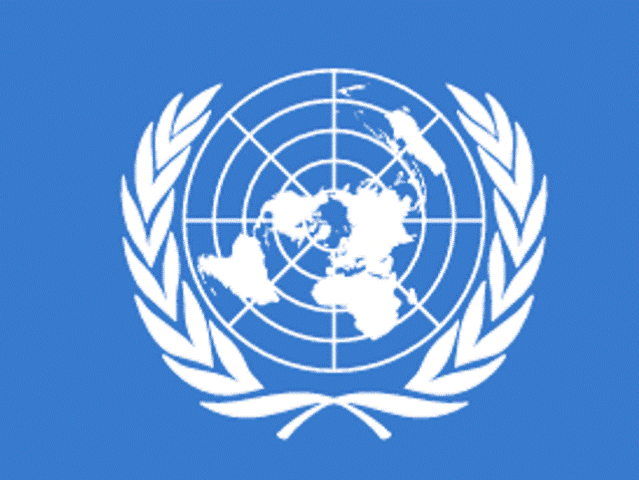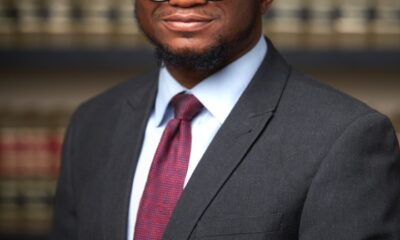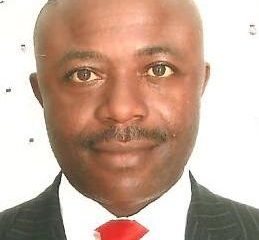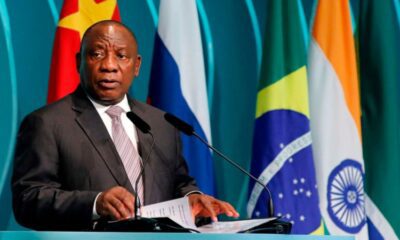Global Issues
Petition to the UN Secretary General on Bakassi Peninsula Developments

Secretary General of the United Nations
2 United Nations Plaza
New York, NY 10017
U. S. A.
September 20, 2013
PETITION TO THE UNITED NATIONS SECRETARY GENERAL ON “BAKASSI PENINSULA DEVELOPMENTS”.
Dear Mr. Ban Ki-moon:
We, The People of Efik Kingdom, thank you for your profound interest and intervention in the Bakassi Peninsula matter. While not delving into the pros and cons of the International Court of Justice (ICJ) rulings, we are aware that the United Nations (UN) did set up a Cameroon /Nigeria Special Mixed Commission to deal with the negative consequences and other issues arising from that judgment.
Our attention has been drawn to the Press Statement (reference – SC 11/094; AFR 2680, of 15th August 2013) titled: “Bakassi Peninsula Developments” issued by the President of the United Nation Security Council – Ms. Cristina Maria Perceval of Argentina. In her statement, Ms. Perceval used her good offices to urge Cameroon and Nigeria to do more for the victims of the International Court of Justice (ICJ) 2002 judgment. We are also aware that the European Union and the African Development Bank promised funds for the actualization of these mandates.
We, as Efik people, have come together as an epistemic community / civil society, to petition you on behalf of our people in relation to ‘Bakassi Peninsula Developments’. We understand the constraints of your office but ask that you do more for the people directly affected by that judgment as both countries, Cameroon and Nigeria, have exhibited gross negligence in their implementation of the UN mandates.
The Mixed UN Commission (West Africa) has the following remaining Mandates[1]:
a) Demarcation and delimitation of the maritime boundaries between Nigeria and Cameroon.
b) Development of projects aiming at promoting the economic joint ventures between the two countries and cross border cooperation.
c) Protecting the rights of the populations concerned.
Our petition is directed at the apathetic manner in which these mandates are being undertaken by the Mixed UN Commission (West Africa). The Commission has failed to convert these vague mandates into policies, procedures and actions with a time frame for their completion.
(a) Demarcation and delimitation of the maritime boundaries between Nigeria and Cameroon.
It is intriguing that the Nigerian Boundary Commission, an agency of the Nigerian Government which does not own a single boat or dug-out canoe, submitted a maritime map of the area in a case adjudicated in the Nigerian Supreme Court[2]. The Nigerian Court later ruled that Cross River state (province within Nigeria) that shares a maritime boundary with the Cameroon Republic is no more a littoral state based on the ICJ ruling in which a demarcation and delimitation has not yet been completed. This is an act of bad faith. Thus, even though we note the words of encouragement issued to the two state actors coming from the President of the Security Council, we would be better served if both countries are given a specific deadline to complete the demarcation and delimitation exercise, so that everyone would know where Cameroon Republic ends and Nigeria begins. (See Appendix 1 – Map of the area in question below.)
b) Development of projects aiming at promoting the economic joint ventures between the two countries and cross border cooperation.
Council President Perceval was silent on the promotion of economic joint ventures between the two countries and we are not aware of any joint economic venture or project being planned for this area by either of the two governments. Neither has there been talk of any specific project that has been earmarked for any economic joint venture that would have been funded by the European Union and the African Development Bank. The silence of the UN creates a lacuna for both countries to shirk their responsibilities to the victims of the ICJ judgment and inhibits cross border cooperation that could turn this area into a free trade zone that would create jobs for the youths in that geographic area and thereby produce the much needed, sustainable economic growth in the region and beyond.
(c) Protecting the rights of the populations concerned.
We are of the opinion that an enumeration exercise should first be carried out to ascertain the total number of people affected by the handover of Bakassi, before implementing any rational plan at rehabilitation or resettlement. We are aware that the Nigerian Government has instituted a findings committee – the Cobham Commission, whose report is right now on the desk of the Nigerian Minister of the Interior. The Cobham Report (which has been shifted to the Nigerian Ministry of Interior) no matter how well intentioned, cannot cover all the gamut of the case which covers issues ranging from dual nationality, freedom of movement and protection of the rights of our people should ideally be managed under Treaty deliberations in the Ministry of Foreign Affairs of both sister countries.
That Report is solely anchored on resettling the displaced people on the DaySpring Island which lies closest to the Cameroun Republic across the Akpayafe/Kwa River. It fails to inform the displaced people that the Atlantic Ocean that washes on the banks of DaySpring Island actually belongs to Akwa Ibom state (a Nigerian province) that does not share any close proximity to the Cameroon Republic geographically. (See Appendix 1 below.)
We are also aware that a Bakassi group has written to the UN demanding the payment of $200bn in damages by the Nigerian and Cameroonian Governments. Their complaint and demand reads:
“We are demanding from Nigeria and Cameroon governments $200bn as special and general damages for the gruesome illegalities of criminal marginalisation, oppression, suppression, discrimination and ethnic cleansing of the Bakassi people. “Since the ceding of the peninsular in August 2008, the natives, who came to Nigeria, have been homeless, while those who remained in the ceded territory and accepted Cameroon sovereignty have been faced with one form of human rights abuse or the other.” [3]
It is obvious that the Cobham Report is not perceived by the Bakassi indigenes as the panacea for the amelioration of the suffering of our people.
The Greentree Agreement adopted by the two state actors which has been found to be inadequate in protecting the rights of the defenceless population is still being flaunted as the only policy preference of both countries. The Greentree Agreement Treaty aimed at executing the ICJ judgment sponsored by the UN Security Council was also anchored on the belief that these vulnerable and mostly illiterate victims are knowledgeable enough to walk into either country’s embassy and obtain the necessary citizenship documentation. The Agreement has thus failed and is not adequate enough to offer protection to the affected populace. As a minimum, the least the UN can do for these displaced people of Bakassi Peninsula, who are mostly small-scale fishermen, is to urge the two governments to offer them a perpetual right to fish around the Peninsula and its environs and a right of free movement within this locale without harassment from the Nigerian or Cameroon authorities. This “right to fish” should also be restricted only to those fishermen in dug out canoes!
It is on record that the Cameroon Republic has derived immense financial and other benefits from oil deposits in Bakassi Peninsula due to the ICJ judgment. We do not begrudge the Cameroon Republic her sovereign rights to levy taxes on those found within her borders. However, tax collection within 24 hours of a traumatic handover of a populace to her jurisdiction combined with the attendant human rights violation of the defenceless peasant fishermen of the Bakassi Peninsula who are destitute, largely illiterate and have very limited or no knowledge of French and English languages, is inconsiderate, condescending and inhumane. This is an act of bad faith.
How much money do these small scale fishermen generate from a canoe load of shrimps that the Cameroun Republic cannot make up from the sale of oil derived from ownership of the peninsula? Must people be abused and killed because of tax collection? It is on record that the Cameroon Republic has also not supplied a drop of drinking water to Bakassi Peninsula since its takeover.
We, The People of the Efik Kingdom view these and other atrocious actions such as the denial of essential services – clean water, health care, electricity, education – to the residents of the Bakassi Peninsula as calculated attempts perpetrated by the Cameroonian Government to frustrate and force the unprotected people of Bakassi Peninsula out of their homeland. We see these acts as the desperate efforts of the Cameroonian Government to thwart the ICJ judgment, UN mandates, and the Greentree Agreement of June 12, 2006. These are acts in bad faith. (See Appendix 2: IPS – Nigerians Uncertain of future in Bakassi)
In conclusion, in the interest of humanity:
1. We ask that you use your good offices to convene a “Stakeholders Summit” in New York, where the modalities and a time table for implementing the three remaining mandates and other issues arising from the ICJ judgment on the Bakassi Peninsula can be discussed and realistic resolutions adopted.
2. We appeal to you to persuade the European Union and the African Development Bank to allocate and disburse funding for the development of a deep sea port on Kwa Islands with rail link to the Cameroun Republic and other parts of Nigeria. This would serve as a hub for international trade within the region, encourage private enterprise, provide an infusion of capital and know-how needed by the area, and consequently lead to the promotion of economic joint ventures between the two countries and cross border cooperation.
3. We propose that the implementation of the remaining UN mandates include components designed to educate the displaced people of Bakassi, and answer questions on the impacts of the transition and the resources available to them using the media, town hall meetings and individual counseling. A good example of such a resource would be to establish manned community centers which would assist indigenes who cannot read or write, complete and process their application for citizenship. We recommend that these centers be equipped with mental health professionals who would be available to provide counseling, therapy and other types of rehabilitation to Bakassi residents who suffer trauma resulting from the loss or imminent loss of their homes, property, friends and neigbours due to relocation.
4. We call for the creation an independent system of accountability designed to monitor, evaluate and report on Bakassi projects in order to minimize waste, misappropriation and embezzlement of resources, and the exploitation of the displaced indigenes of Bakassi Peninsula who have been left unprotected due to ignorance and non-existent or inadequate representation.
5. We plead with the Cameroon government to exercise patience, understanding and restraint in its dealings with these innocent victims of Bakassi Peninsula who had no say as to which country they belong and are not different from the people who live in the Manyu Province of the Cameroon Republic. These affected people do not know, nor are they interested in the oil wealth of the region. All they ask is to be allowed to go about their business and earn an honest livelihood without persecution.
6. We urge the Nigerian Government to stay action on the Cobham Report until the development of a comprehensive and effective implementation strategy that embraces all remaining aspects of the UN mandates is cobbled together to resolve all contentious issues in the best interest of the people affected once and for all.
Thank you
Sincerely
|
1. Prof. Okon Akiba, PhD 2. Mr. Edet Antigha 3. Mr. Bassey Asuquo 4. Mrs. Eka Asuquo 5. Mr. Patrick Asuquo, PhD 6. Ntunkae Bernadine Asuquo-Ahonkai, ED.D 7. Mr. Okon Bassey 8. Ms. Ekanem Bassey Ekpo Bassey 9. Chief Susan Bassey-Duke 10. Mr. Dominic Bassey 11. Chief Emmanuel Duke 12. Chief Paul Duke 13. Etinyin (Dr.) Joe Duke (11) 14. Etinyin Bassey Esu Bassey- Duke 15. Chief Ntekim Duke 16. Mr. Erete Asuquo Ebong 17. Barr. Offiong Effiwatt 18. Ms. Obo Effanga 19. Barr. Edem Effiom-Ekong 20. Chief Richard Effiong 21. Mr. Sam Edem 22. Mr. Tatabonko Orok Edem 23. Mr. Augustus Edet 24. Mr. Kofi Ekanem 25. Mr. Offiong Ekpe
|
26. Mr. Ekpenyong Bassey Ekpenyong 27. Ms. Anne Ene-Ita 28. Mr. George Ene-Ita 29. Mr. Effiom Etim 30. Hon. Mr. Ekpenyong Eyamba 31. Mr. Aye Otu Eyo 32. Mr. John Henshaw 33. Prof. Elizabeth Henshaw 34. Mr. Sam Hogan 35. Chief (Barr.) Orok Ironbar 36. Mrs. Edak Iwuchukwu 37. Chief Ikpeme Ikpeme 38. Mr. Effiom Eyo Ita 39. Chief Eyo Ndem Eyo Ita 40. Etinyin (Arc) Bassey Eyo Ndem 41. Mr. Mike J. Nkpang 42. High Chief Eyo Etim Nyong, PhD 43. Ms. Ekanem Etim Offiong 44. Mr. Essesien Offiong 45. Mr. Ekpo Bassey Orok 46. Mr. Effiong Mesembe Otu 47. Mr. Efiok Otudor 48. Mr. Asuquo Ukpong 49. Mrs. Eka Williams, PhD 50. Maj. Gen. Inameti Yellow-Duke (rtd) |
All correspondence to esienefik12@googlegroups.com
P. O. Box 40745
Staten Island, NY 10304
U.S.A.
Copy
The President of the Federal Republic of Nigeria
The President of the Republic of Cameroun
HE Amb. Gary Francis Quinlan (Australia) UN Security Council
Said Djinnit, the Special Representative of the Secretary-General for West Africa, UN Mixed Commission (West Africa)
The President, European Union
The President, African Development Bank
Heads of Government of the 5 Permanent Members of the UN Security Council
UN Permanent Missions of all the Parties
Office of the Permanent Observer for the International Tribunal for the Law of the Sea to the United Nations
APPENDIX 1
MAP showing the locus in quo: The body of water (grid) on the map designated Cross River Territorial waters has actually been ceded to Akwa Ibom state of Nigeria by the Nigerian Supreme Court, contrary to the 1982 UN Law of the Sea Conventions on delineation of internal waters.
APPENDIX 2
Culled from – http://www.ipsnews.net/2013/09/nigerians-uncertain-of-future-in-bakassi-peninsula/
[1] UNOWA: Cameroun Nigeria Mixed Commission – http://unowa.unmissions.org/Default.aspx?tabid=804
[2] Cross River, Akwa Ibom and the illegal NBC map: http://www.vanguardngr.com/2012/07/cross-river-akwa-ibom-and-the-illegal-nbc-map/ Accessed on September 20, 2013.
[3] Nigerian Newsday Newspapers: http://nigerianewsday.com/news-a-commentary/84-in-the-news/3036-bakassi-indigenes-demand-200billion-for-damages/ of June 6, 2013. Accessed September 10, 2013.




















